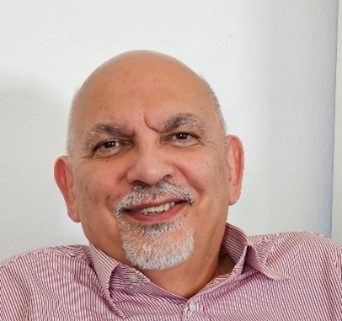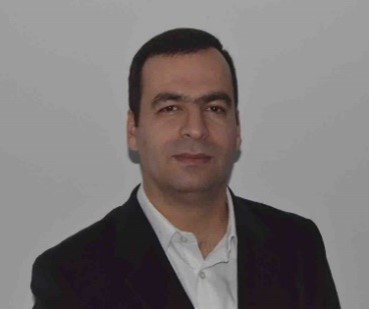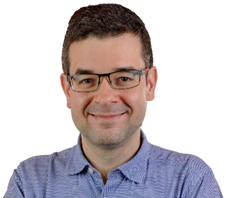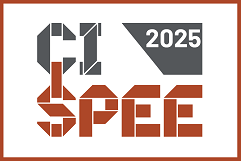Cybersecurity and Engineering Education
Abstract: Engineers’ works are more and more connected. In the past not even computers were networked, but now cars are networked, buildings are networked, and all kinds of devices are also networked. This evolution demands a strong knowledge of cybersecurity from all kinds of engineers. The issue with security is that security cannot be added to a system. It needs to be designed into a system from the beginning. In order to do that, we need to reformulate engineering education so all engineers have a solid foundation of cybersecurity. This round table aims to discuss how to include cybersecurity in engineering curricula, to face future cybersecurity threats. This roundtable is expected to have the contributions of highly relevant people in the fields of cybersecurity, both from a law enforcement side and from the industry side, to ensure the best possible discussion is fostered.

Anikó Costa
Bio: Anikó Costa received her engineer degree in Electrical Engineering from Czech Technical University in Prague in 1992, her Master's degree in Informatics, and Ph.D. degree in Electrical Engineering from the Nova University of Lisbon in 2003 and 2010 respectively. She is currently an Assistant Professor at NOVA School of Science and Technology. Her main research interests include model-based development of embedded systems using Petri nets, and statecharts, digital system design, and hardware-software co-design. Her interests also include engineering education. She is member of IEEE and she is the chair of the Education Chapter of the Portugal Section.

Eda Marchetti
Bio: EDA MARCHETTI received the degree (summa cum laude) in computer science and the Ph.D. degree from the University of Pisa. She is currently a Senior Researcher with CNR-ISTI. She has been responsible for CNR-ISTI of several national and international EU projects and actively participatedin more than 20 national and international projects.Her research interests include software testing in general and, in particular, on introducing novel methodologies for testing emerging software technologies, cybersecurity, value-based, and ethical aspects. Her research topics include security and privacy, access control systems, model-based testing, requirement management and assessment, monitoring business process, human-centric process management and scheduling, operational and structural testing, interoperability testing, domain-specific testing, product certification and assessment. She has coauthored more than 150 papers in international journals and conferences

José Barata
Bio: José Barata, Full Professor at Electrical and Computing Engineering. Computer Engineer, Master in Computer Engineering and PhD in Electrical Engineering and Computers from NOVA-FCT. Member of the Scientific Committee of the Doctoral Program in Electrical Engineering and Computers, of the DEEC Council, coordinator of the Master's in Robotics and Intelligent Manufacturing Systems, and lecturer of the courses related to Robotics and Intelligent Manufacturing Systems. He is a senior researcher at CTS – Technology and Systems Center of Instituto UNINOVA, where he coordinates the RICS – Robotics and Industrial Complex Systems research group, which develops research in the areas of service robots and smart industry. Within the RICS group, he has led UNINOVA's participation in several international projects from different European Programs, as well as various national programs, FCT and PT2020/30. He is a member of the technical committees of IEEE on Industrial Agents (IES), Self-Organization, and Cybernetics for Information.

Nelson Escravana
Bio: Executive Board Member and Director of Cybersecurity R&D Unit at INOV - INESC Inovação, has more than 25 years of professional experience in the fields of telecommunications and information security and is a regular consultant for national and European entities. It also regularly conducts training sessions and seminars on cybersecurity and has participated in dozens of European and National R&D projects. Since 2023, he has been a member of the Cybersecurity Specialization Installation Committee of Ordem Dos Engenheiros and a member of the Executive Committee of the European Digital Innovation Hub in Cybersecurity – C-Hub.

Nuno Cruz
Bio: Nuno Cruz, who has a PhD in Computer Engineering from the University of Lisbon, is a coordinating professor at the Lisbon Higher Institute of Engineering, a researcher at LASIGE and at ISEL's Future Internet Technologies research group. He is currently the coordinator of the Computer Engineering Speciality College of the Order of Technical Engineers and a member of its National Cybersecurity Office. With over 25 years' experience, he specialises in technological innovation, focusing on communication networks, distributed systems and cybersecurity. Topics applied in particular to the Internet of Things, railway communications and intelligent transport systems. He coordinates R&D teams and leads collaborative projects between academia, industry and public administration. He actively participates in R&D projects in partnership with companies, contributing to technology transfer, professional training and the development of innovative products. The author of several publications, he is recognised nationally and internationally for his scientific and technological contributions.

José Amador
Bio: José Amador holds a Law degree from the Faculty of Law of Lisbon (since 2000). He joined the Judiciary Police in 2004 as an Inspector. Since then, he has worked in various areas of criminal investigation, notably in Economic and Financial Crime. Since 2010, he has been serving as an investigator in the field of Cybercrime, also leading a Cybercrime Investigation Unit within the UNC3T of the Judiciary Police. He has also represented the Criminal Police in various international forums and working groups.

